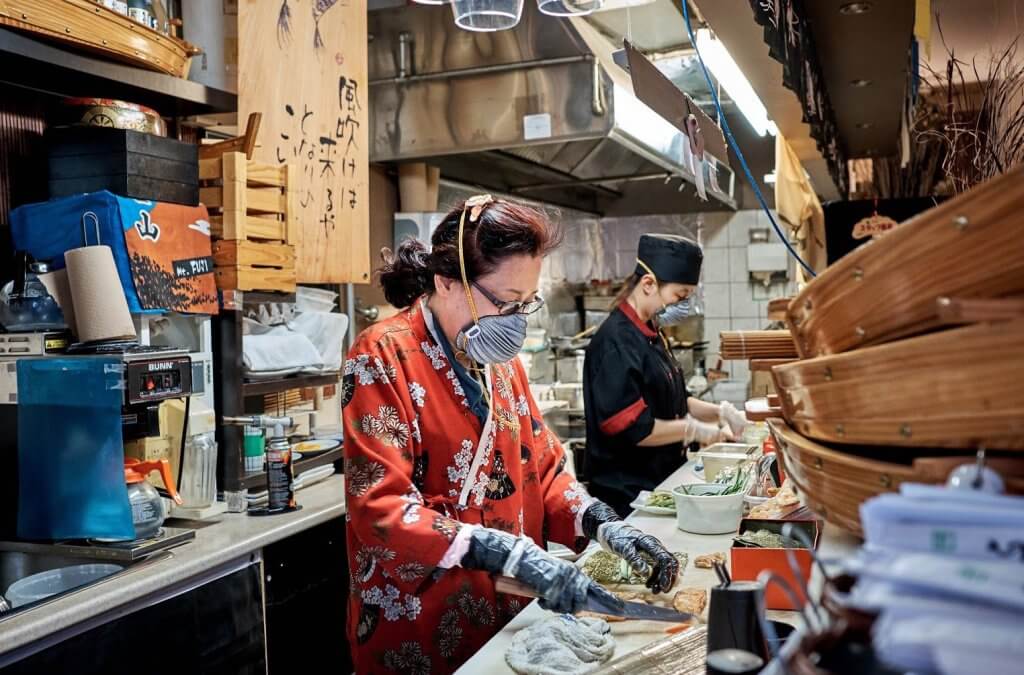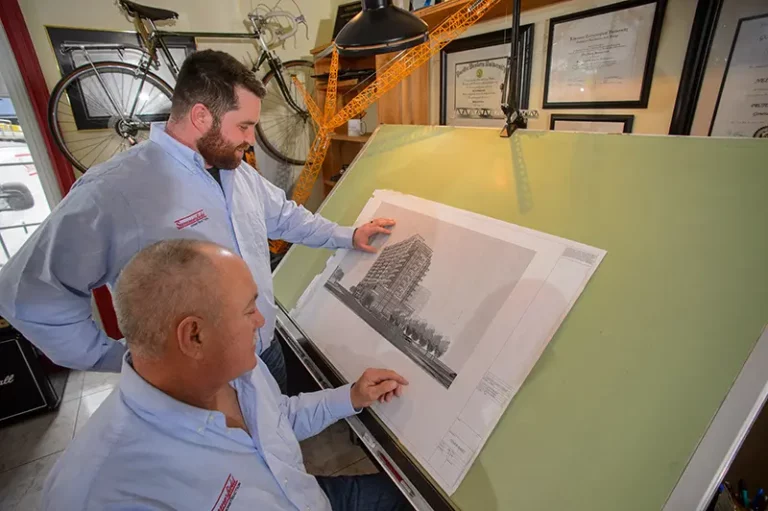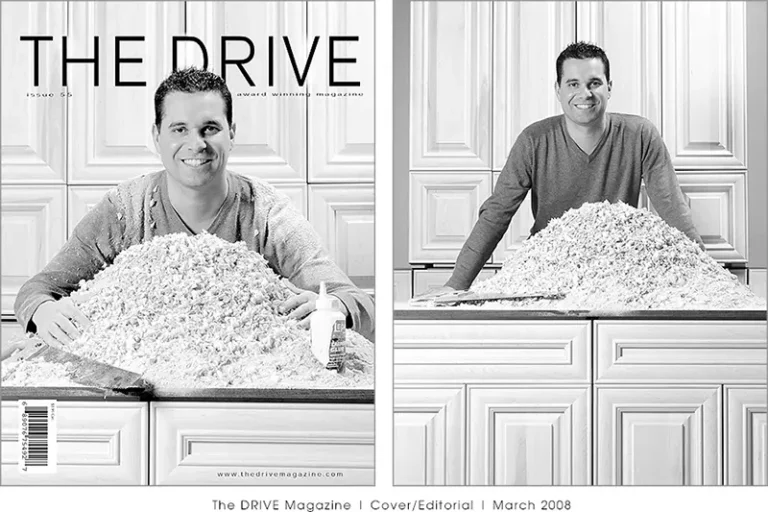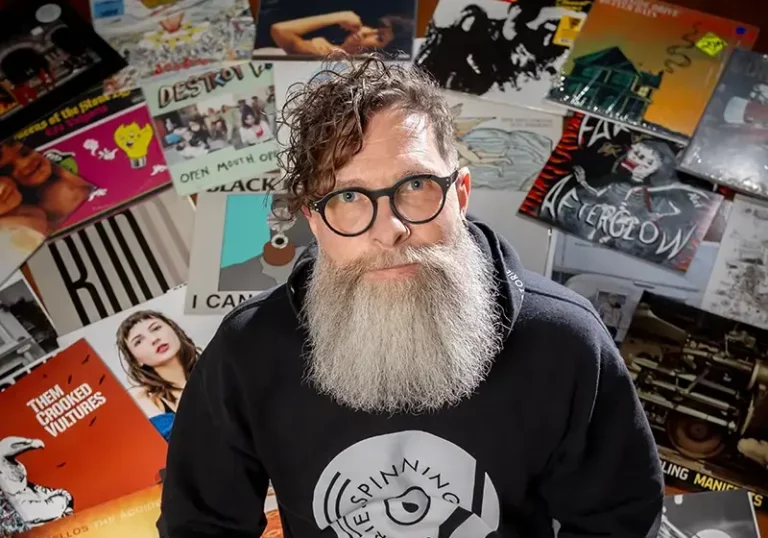Hardship of any kind tends to have a transformative effect on society. As the coronavirus pandemic takes its course, we have had ample time for reflection, giving us the breather many of us needed to redefine our priorities before achieving the coveted state of the “new normal.”
These deliberations could indeed help us shape what the “new” could mean, and recent trends have been cause for optimism. An important and uneasy distinction we were forced to make under lockdown is one between what is to be considered “essential” and “non-essential”. The “essential” side is easier to identify; food, health, construction, and other industries that serve physiological needs (i.e. keep
us alive) easily fall on the essential side. So where, then, do we draw the line?
Cafes make for an interesting case, as they fall in the grey area between the physiological need fulfillment (and maintenance of productivity, something which any coffee drinker can confirm) and value-added social gathering places. Drive throughs have proven invaluable for large chains, but the non-franchise, family-owned spots that make towns and cities truly shine with unique atmospheres and personalities do not generally have the infrastructure or even the appropriate product to go along with this business model. They have been relying on take-out, curbside pick-up and delivery apps for most of their revenue, which only mitigates some of the losses. However, as lockdown eases, we see an encouraging sentiment of relief and excitement spilling onto the streets. After weeks, even months under lockdown, people are ecstatic about socializing at their favourite local spots, surrounded by strangers and familiar faces alike, experiencing a handicapped but nevertheless recovering hustle and bustle that brings life to our surroundings.
Before reaching the gradual re-opening phases, adaptation and innovation have been key to the survival of our cherished local treasures. Henry Kim and his family, who run downtown Windsor’s Cafe March 21, began making deliveries all over town when rules around a potential curbside pick-up system were still unclear, whether it be coffee supplies or their wonderful in-house cookies. The cafe’s considerable social media presence and strong retail angle have been instrumental in this, reminding regulars that they can still place orders (who in turn have been sharing their post-delivery elation in their own social media for the uninitiated to discover).
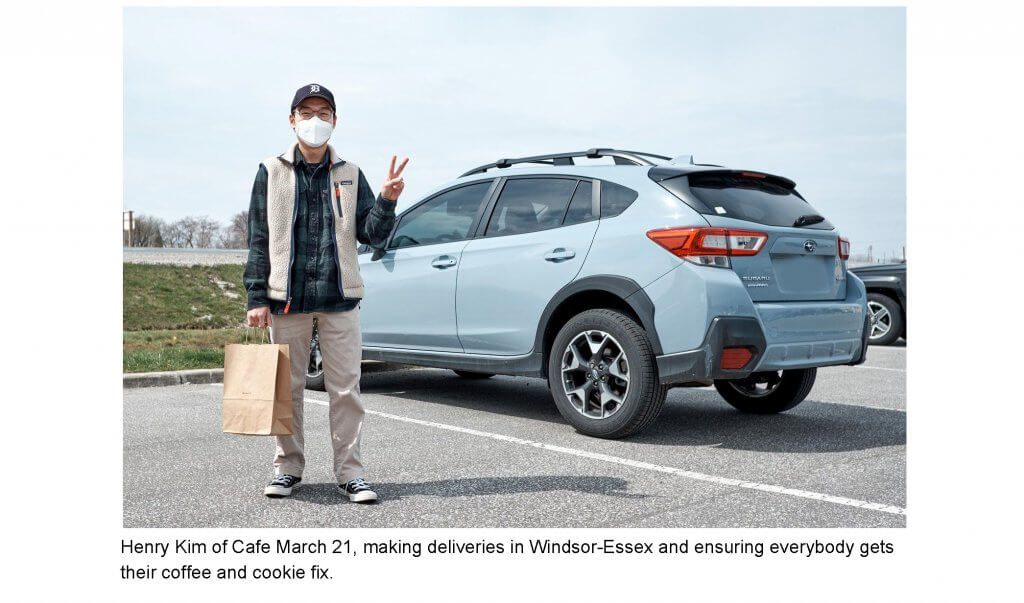
Bella Na, Stella Chae and Amy Pyung of Sushi California have also been keeping busy bolstering their take-out and delivery business. Social distancing measures, such as limiting staff to the members of their households, have resulted in strenuous peak hours, yet they
continue to make their product proudly, without compromising quality. While busy peak hours are an encouraging sign, concerns persist. “The fear and uncertainty have continued to breathe down our necks,” admits Bella, “but all we can do right now is just do what we do each day, each moment.”
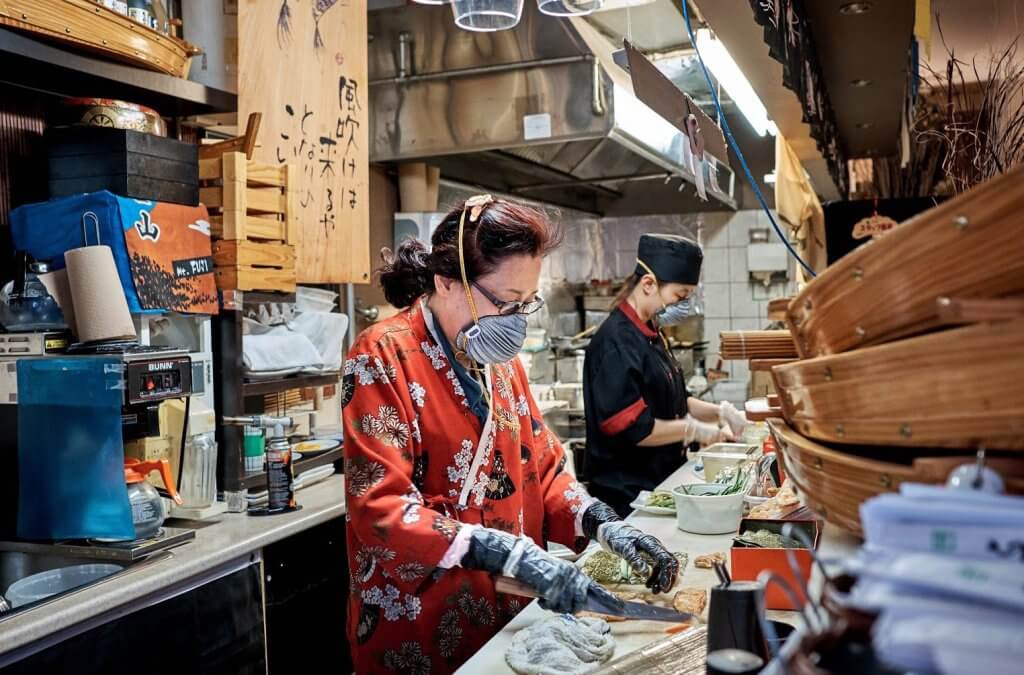
This sentiment is consistent among local restaurateurs. Vanessa and Stephanie Clark of Toastie’s have seen a substantial part of their core customer base drop suddenly, and the decision of the university and college to host online-only lectures further aggravates the situation and the anxieties that come with it.
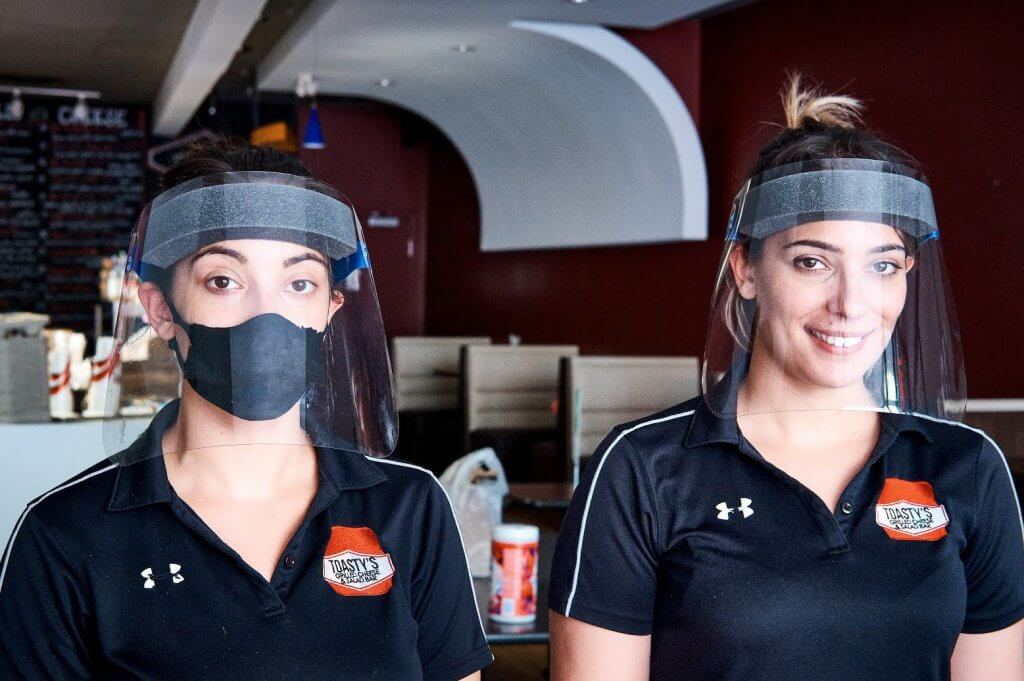
Boutiques, further away from the line, have been especially devastated by the lockdown. One would come to the logical conclusion, then, that a boutique selling souvenirs in the decimated tourism sector, would be buried. Yet that is not the case for Allison Mistakidis and Katie Stokes of Whiskeyjack Boutique. Being able to turn their attention to their online store, the boutique has found clients from all over, including international clients. When curbside pick-up was approved, they wasted no time offering this option for customers who want to make smaller orders, like get-well cards or simple gifts. It does not fully compensate for the drought of local and touristic
foot traffic, but it certainly eases the burden.
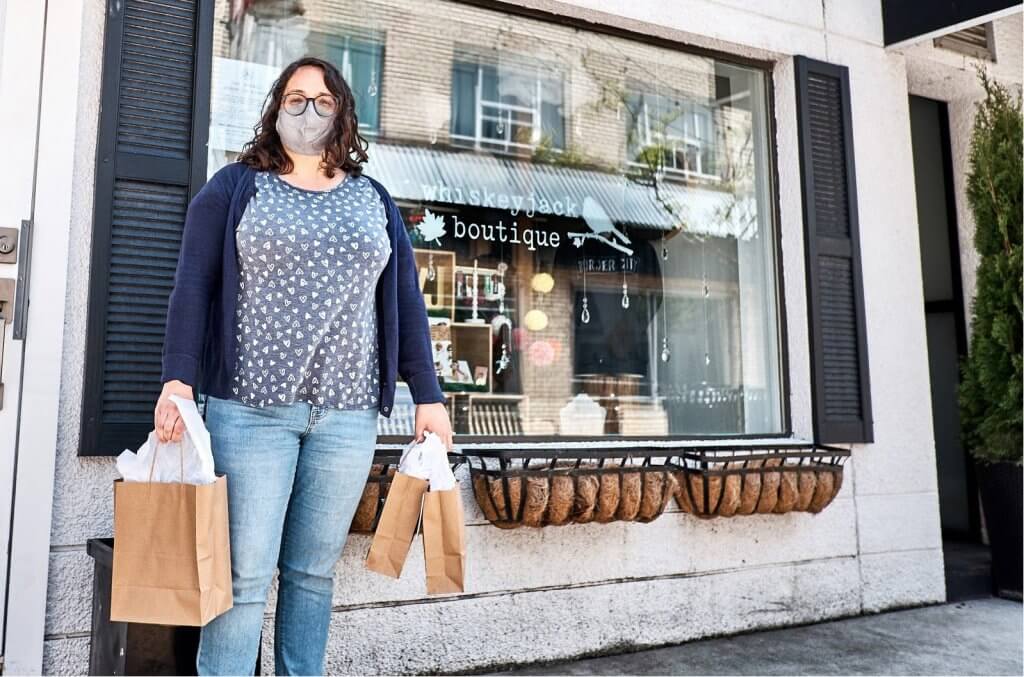
Phase two, along with the resumption of the downtown farmers’ market, has certainly been a breath of relief for these businesses, fueled by the solidarity Windsor citizens have been demonstrating in their support for these events, bolstering an ever-present sense of community.
These businesses have one distinct advantage that allows for the alleviation of economic hardship; they offer a product that can leave the store and still be enjoyed. What then of businesses where space and human contact is the business?
An art studio operator offering space, lessons and private parties, Jennifer Merritt of Purple Sun Art Studio in Belle River has faced this dilemma and uncertainty. Previously looking forward to busy stretches like March break and the summer holiday, Jen has had to cancel most activities and suspend her services until restrictions are significantly eased. In the meantime, she has decided to hold “sidewalk exhibitions,” displaying works made during the lockdown from herself and other local artists through the window of her store for any passerby to admire, regularly announcing rotations through her social media. “ It was a slow start to getting people willing to
display their work,” says Jennifer while installing pieces for her next exhibition. “But for both ‘shows’ I’ve been able to fill the window with some pretty fantastic artwork from the young and not so young creative people in our community.”
Her son, a carpenter and artist in his own right, has also made the most of the crisis.
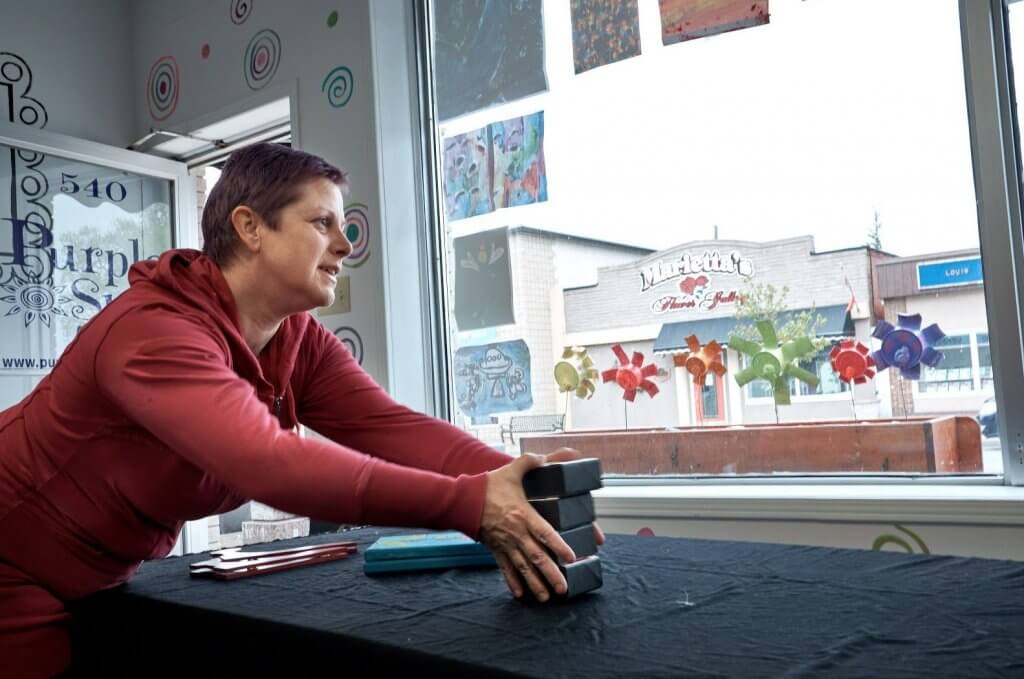
Temporarily laid off from his construction job, Nathan Merritt of N.M. Woodshop took the mandatory time off to focus on his side project, making classy custom-order household goods like coasters and charcuterie boards, often featuring colourful epoxy patterns that give every one of his creations a punchy, lively flair.
These are times of great uncertainty. This can leave local business owners, who often invest a great deal of themselves into their business, anxious and exhausted. As restrictions begin to lift, there is still much concern for these businesses as to what a “new normal” will look like. So far, trends have been encouraging, as it seems enough people are willing to venture out of their homes. And one thing remains the same, no matter who it concerns; Windsor-Essex’s small business community has remained resilient and continued to serve us.
Coffee, sushi, postcards, grilled cheese and art lessons may not officially be considered “essential,” but they are a vital part of our lives, and allow us to relive the times before social distancing to a small but indispensable degree. The restrictions will be lifted, and the new normal will take its course. The small, unique businesses run by friends and neighbours deserve to be a part of it, and it has been a pleasure to see that the community seems to agree.
